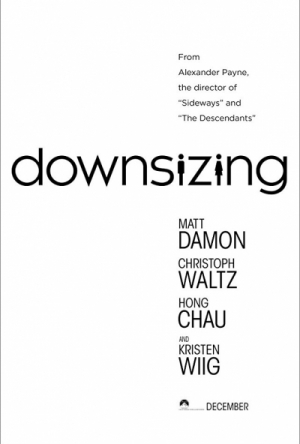Search
-
MM
Matt Maher
Artist
Gareth von Kallenbach (965 KP) rated Live By Night (2017) in Movies
Jul 12, 2019
I’m a sucker for a Prohibition-set yarn. It’s a fascinating period in history and typically yields excellent filmmaking with gritty, no-nonsense performances, gorgeous production design and hard-boiled action. It was De Palma’s The Untouchables that hooked me. Some would call it a guilty pleasure; and sure, Morricone’s score is a little over-the-top, De Niro is more caricature than character actor as Al Capone and I’m not going to argue that Connery’s Oscar was a “sympathy vote”, but it’s got everything I mentioned above in spades and for me it’ll always be the high benchmark of the Prohibition era gangster epic. Ben Affleck’s fourth turn as director has done nothing to change my position on that.
Live by Night is an uninspired mess, from voice-over laden start to disastrously predictable end, bringing nothing new or exciting to the table. Beat for beat, its weak script moves from one sigh-inducing cliché to another, reaching clumsily for moments of high emotion that ring hollow and false. If anyone needs any further proof that Matt Damon did all the heavy lifting on the script for Good Will Hunting, they need look no further. It feels wrong to come down so hard on Affleck after his back-to-back successes as a director, but this is more akin to the first work of a blundering novice, and also certainly not what we’ve come to expect of a Dennis Lehane adaptation (see Mystic River, Shutter Island and Affleck’s own incredible directorial debut, Gone Baby Gone). His decision to wear so many hats on this project, producing, directing, sole screenwriter and lead actor, has to be the reason for this stumble. The script desperately needed another set of eyes and the part of Joe Coughlin was clearly written for someone younger and more capable of performing with the subtlety needed to play someone who has to traverse the number of moral dilemmas he’s faced with. Hopefully, this inevitable failure will be what convinces Affleck that his place should be behind the camera directing other people’s scripts and guiding other people’s performances.
Speaking of the performances, there is a massive curve in this collection of acting that swings wildly from the cartoonish to the nuanced. To start with, we have Matthew Maher as a KKK member out for his cut and Robert Glenister as an Irish mob boss, both of whom are supposed to be playing dangerous and threatening but can’t do any better than laughable and two-dimensional. Then there’s Chris Messina and Affleck himself as the hoods on the rise, their chemistry is ill-advised at best as they both seem to think they’re in a buddy comedy as opposed to a serious piece of gangster melodrama A favorite of mine, Brendan Gleeson, sadly leaves the screen within the first twenty minutes and that left me with only the inimitable Chris Cooper to look forward to. The subplot involving him and Elle Fanning, as his born-again daughter speaking out against Coughlin’s sinful ways is not without problems of its own, but at least they sell it. That should be no surprise on Cooper’s part, but now between this and The Neon Demon last summer; Fanning is firmly on my radar as one to watch. My hope was that we were going to get some tremendous battle of wills between her and Affleck’s character akin to Paul Dano and Daniel Day-Lewis’ conflict in There Will Be Blood, but that was definitely asking too much. Fanning’s role, like Gleeson’s, is unfortunately cut short just as it gets good.
I guess The Untouchables is starting to sound less like a guilty pleasure and more like a masterpiece when compared to this regrettable misfire.
Live by Night is an uninspired mess, from voice-over laden start to disastrously predictable end, bringing nothing new or exciting to the table. Beat for beat, its weak script moves from one sigh-inducing cliché to another, reaching clumsily for moments of high emotion that ring hollow and false. If anyone needs any further proof that Matt Damon did all the heavy lifting on the script for Good Will Hunting, they need look no further. It feels wrong to come down so hard on Affleck after his back-to-back successes as a director, but this is more akin to the first work of a blundering novice, and also certainly not what we’ve come to expect of a Dennis Lehane adaptation (see Mystic River, Shutter Island and Affleck’s own incredible directorial debut, Gone Baby Gone). His decision to wear so many hats on this project, producing, directing, sole screenwriter and lead actor, has to be the reason for this stumble. The script desperately needed another set of eyes and the part of Joe Coughlin was clearly written for someone younger and more capable of performing with the subtlety needed to play someone who has to traverse the number of moral dilemmas he’s faced with. Hopefully, this inevitable failure will be what convinces Affleck that his place should be behind the camera directing other people’s scripts and guiding other people’s performances.
Speaking of the performances, there is a massive curve in this collection of acting that swings wildly from the cartoonish to the nuanced. To start with, we have Matthew Maher as a KKK member out for his cut and Robert Glenister as an Irish mob boss, both of whom are supposed to be playing dangerous and threatening but can’t do any better than laughable and two-dimensional. Then there’s Chris Messina and Affleck himself as the hoods on the rise, their chemistry is ill-advised at best as they both seem to think they’re in a buddy comedy as opposed to a serious piece of gangster melodrama A favorite of mine, Brendan Gleeson, sadly leaves the screen within the first twenty minutes and that left me with only the inimitable Chris Cooper to look forward to. The subplot involving him and Elle Fanning, as his born-again daughter speaking out against Coughlin’s sinful ways is not without problems of its own, but at least they sell it. That should be no surprise on Cooper’s part, but now between this and The Neon Demon last summer; Fanning is firmly on my radar as one to watch. My hope was that we were going to get some tremendous battle of wills between her and Affleck’s character akin to Paul Dano and Daniel Day-Lewis’ conflict in There Will Be Blood, but that was definitely asking too much. Fanning’s role, like Gleeson’s, is unfortunately cut short just as it gets good.
I guess The Untouchables is starting to sound less like a guilty pleasure and more like a masterpiece when compared to this regrettable misfire.
Bob Mann (459 KP) rated Downsizing (2017) in Movies
Sep 29, 2021
Tiny People, Big Mess.
From the trailer this film looked quirky, funny and interesting and has been on my “looking forward to” list for many months. Oh dear, what a let down.
Matt Damon (“The Martian“, “The Great Wall“, “Jason Bourne“) and Kristen Wiig (“mother!“, “Ghostbusters“) play Paul and Audrey Safranek. Paul is a laid-back and hardworking occupational therapist; Audrey has materialistic ambitions over and above their available finances. The two decide to “downsize” making use of a revolutionary Norwegian invention that reduces humans, and most other lifeforms, to a fraction of their normal size. This offers huge wealth to the normal American, since the cost of living in downsized form within the mini-estate called LeisureLand is tiny in comparison to “big folks”. But all does not go well in the transition (unlike the trailer, no spoilers here) and Paul needs to find a new purpose in life as bigger problems loom.
It’s clearly written to be a social satire, and there are some clever angles to be explored here: everyone publicly positions their downsizing based on ‘environmental issues’ and ‘saving the planet’, but most everyone’s real reason is the lifestyle benefits. Also lightly touched on, but never deeply explored, are the impacts that the downsizing initiative is having on the broader American economy and property markets, with the ‘big people’ questioning why small people should have the same rights and votes as them.
But the film never really gets into the meat of any of this. Worse than that, the movie never settles on what it is trying to be. I think we can write off “Sci-Fi” pretty early on. But is it a drama? A comedy? A love story? A socialist rant? An environmental cri de coeur? The film jumbles all these aspects together and treats each so halfheartedly that none of them get properly addressed.
Not only are the audience confused: none of the actors seem to be too sure why they’re there either. Damon – never Mr Personality – should have been able to develop some chemistry with the feisty and dynamic Ms Wiig, but even these early scenes plod along with you thinking “what a dull film”. Things perk up slightly at the LeisureLand sales fair, where Neil Patrick Harris (“Gone Girl“) and a naked Laura Dern (“Star Wars: The Last Jedi“) glibly try to sell a luxury doll’s house to the assembled crowd. American consumerism in miniature.
But post-downsizing the film crashes back to ‘Dullesville Arizona’ again, but with added depression, requiring Christophe Waltz (“Django Unchanined”, “Spectre“), as a dodgy Serbian entrepreneur Dusan Mirkovic, to over-act manically to try to add any sort of energy into the film (which he is only mildly successful at doing). There’s a rather bizarre supporting role from Udo Kier – looking for all the world like Terence Stamp – as Mirkovic’s ship-owning pal, and an almost cameo performance from Jason Sudeikis (“Colossal“).
Enter stage-left Thai-born Hong Chau as Ngoc Lan Tran, a Vietnamese cleaner. There’s a clever angle here: where “average American Joes” like Safranek can live like kings, but the poor still have to scrape by, living in ‘skyscraper Portacabins’, as the menial classes: there’s no escaping class structures, even when 5 inches tall. Chau sums up the uneven nature of the film, as she mostly plays her lines for laughs but then (in a spectacularly good bit of acting in the midst of, I have to say, some pretty poor hamming) bursts into uncontrollable tears.
Just when you think things are going to limp to a unmemorable close, the film ups and leaves LeisureLand to add a completely bizarre final act. (It’s pretty unusual in the UK for people to walk out of a cinema mid-film, but a couple did so at this point). This segment bears no relationship to the downsizing theme whatsoever, since all the players at this point could be full-sized. Aside from an amusing “50 shades of f**k” speech from Ngoc Lan Tran and a “massive explosion”, this story goes nowhere, says nothing (at least not to me) and merely irritates. Throw in a completely anti-climatic non-ending and I genuinely shared a “WTF look” with the stranger sat next to me!
This is all very strange, since this comes from Alexander Payne, who also directed and co-wrote “The Descendants”, one of the most impressive films of the decade. Jim Taylor co-writes (as he has co-written numerous other films with Payne).
I note that in this morning’s London Times that their film critic, Kevin Maher – someone who’s views I am generally pretty well aligned with – gave it 4 *’s out of 5. I can only assume that he either saw a completely different cut of the film, or he is a lot cleverer than I am and understood amazing sub-texts that completely passed me by! Maybe… but I have a sneaking suspicion that the general viewing public will more share my opinion on this than his.
I was tempted to give this just one star as it was such a disappointment to me, but the underlying concept is a good one: it is just one that has, in my humble opinion, been implemented in a bizarrely slipshod manner.
Definitely not recommended. Go and see “Coco” instead!
Matt Damon (“The Martian“, “The Great Wall“, “Jason Bourne“) and Kristen Wiig (“mother!“, “Ghostbusters“) play Paul and Audrey Safranek. Paul is a laid-back and hardworking occupational therapist; Audrey has materialistic ambitions over and above their available finances. The two decide to “downsize” making use of a revolutionary Norwegian invention that reduces humans, and most other lifeforms, to a fraction of their normal size. This offers huge wealth to the normal American, since the cost of living in downsized form within the mini-estate called LeisureLand is tiny in comparison to “big folks”. But all does not go well in the transition (unlike the trailer, no spoilers here) and Paul needs to find a new purpose in life as bigger problems loom.
It’s clearly written to be a social satire, and there are some clever angles to be explored here: everyone publicly positions their downsizing based on ‘environmental issues’ and ‘saving the planet’, but most everyone’s real reason is the lifestyle benefits. Also lightly touched on, but never deeply explored, are the impacts that the downsizing initiative is having on the broader American economy and property markets, with the ‘big people’ questioning why small people should have the same rights and votes as them.
But the film never really gets into the meat of any of this. Worse than that, the movie never settles on what it is trying to be. I think we can write off “Sci-Fi” pretty early on. But is it a drama? A comedy? A love story? A socialist rant? An environmental cri de coeur? The film jumbles all these aspects together and treats each so halfheartedly that none of them get properly addressed.
Not only are the audience confused: none of the actors seem to be too sure why they’re there either. Damon – never Mr Personality – should have been able to develop some chemistry with the feisty and dynamic Ms Wiig, but even these early scenes plod along with you thinking “what a dull film”. Things perk up slightly at the LeisureLand sales fair, where Neil Patrick Harris (“Gone Girl“) and a naked Laura Dern (“Star Wars: The Last Jedi“) glibly try to sell a luxury doll’s house to the assembled crowd. American consumerism in miniature.
But post-downsizing the film crashes back to ‘Dullesville Arizona’ again, but with added depression, requiring Christophe Waltz (“Django Unchanined”, “Spectre“), as a dodgy Serbian entrepreneur Dusan Mirkovic, to over-act manically to try to add any sort of energy into the film (which he is only mildly successful at doing). There’s a rather bizarre supporting role from Udo Kier – looking for all the world like Terence Stamp – as Mirkovic’s ship-owning pal, and an almost cameo performance from Jason Sudeikis (“Colossal“).
Enter stage-left Thai-born Hong Chau as Ngoc Lan Tran, a Vietnamese cleaner. There’s a clever angle here: where “average American Joes” like Safranek can live like kings, but the poor still have to scrape by, living in ‘skyscraper Portacabins’, as the menial classes: there’s no escaping class structures, even when 5 inches tall. Chau sums up the uneven nature of the film, as she mostly plays her lines for laughs but then (in a spectacularly good bit of acting in the midst of, I have to say, some pretty poor hamming) bursts into uncontrollable tears.
Just when you think things are going to limp to a unmemorable close, the film ups and leaves LeisureLand to add a completely bizarre final act. (It’s pretty unusual in the UK for people to walk out of a cinema mid-film, but a couple did so at this point). This segment bears no relationship to the downsizing theme whatsoever, since all the players at this point could be full-sized. Aside from an amusing “50 shades of f**k” speech from Ngoc Lan Tran and a “massive explosion”, this story goes nowhere, says nothing (at least not to me) and merely irritates. Throw in a completely anti-climatic non-ending and I genuinely shared a “WTF look” with the stranger sat next to me!
This is all very strange, since this comes from Alexander Payne, who also directed and co-wrote “The Descendants”, one of the most impressive films of the decade. Jim Taylor co-writes (as he has co-written numerous other films with Payne).
I note that in this morning’s London Times that their film critic, Kevin Maher – someone who’s views I am generally pretty well aligned with – gave it 4 *’s out of 5. I can only assume that he either saw a completely different cut of the film, or he is a lot cleverer than I am and understood amazing sub-texts that completely passed me by! Maybe… but I have a sneaking suspicion that the general viewing public will more share my opinion on this than his.
I was tempted to give this just one star as it was such a disappointment to me, but the underlying concept is a good one: it is just one that has, in my humble opinion, been implemented in a bizarrely slipshod manner.
Definitely not recommended. Go and see “Coco” instead!







